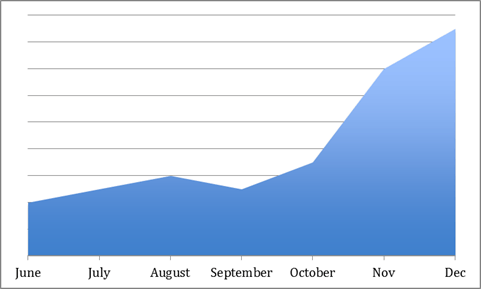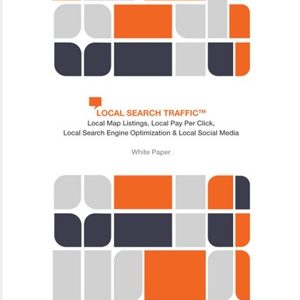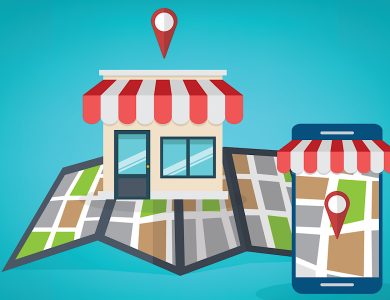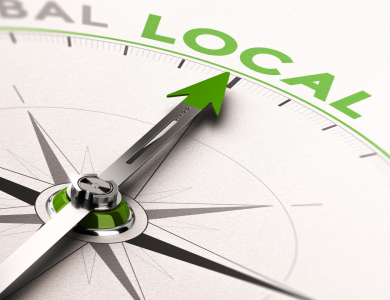
In the last two months, the launch of the Google Places O-Pack has made waves. It seems that everyone has finally realized that Google Local is a major focus for the tech giant moving forward, leading many businesses to follow suit.
Below is a chart showing the volume of leads that have come through my Local Search Marketing Company since the October 27th update.
The past few months have been good for business. However, these changes also bring challenges that need addressing, which is the focus of this post.
The new mix of organic and map results has led to confusion for companies that have long optimized their websites, only to now see map pins next to their listings. There are more errors, concerns, and products being pushed out quickly without improving existing ones.
While there are two sides to this coin, you can’t have a gold coin with only one side. So, here is my open letter to Google Places….
Dear Google Places,
Thank you for helping bring customers to local businesses and creating an industry for me to work in. Your innovations like Google Tags, Boost, Hotspot, and the O-Pack are impressive!
However, let’s address some issues that, while not trendy, could significantly reduce spam, help businesses keep up with updates, show the value of Places, and potentially make you more money.
1. Why do you let keywords and location information in the business title affect rankings?
Your guidelines state:
Business Name: Represent your business exactly as it appears in the offline world.
- Do not include marketing taglines in your business name.
- Do not include phone numbers or URLs in the business name field, unless they are part of your business name.
- Do not attempt to manipulate search results by adding extraneous keywords or descriptions in the business name field.
Yet, businesses with keyword-rich names often rank higher, penalizing those who comply with the guidelines. This allows new companies to spam the system while legitimate businesses suffer. Business titles should have zero impact on rankings to prevent this.
Here’s a screenshot showing a maps search result where only one title is legit, with others gaming the system and ranking well as a result. When businesses see this, they often follow suit and end up in trouble.
2. Why don’t you offer support?
This has been a longstanding issue. While sacrifices must be made, the number of problems in local search is more than just a few. Issues like duplicate content, merged tags, swapped reviews, and lost listings negatively affect businesses following your rules.
Monetizing local search with Boost and Tags but still not offering support to paying customers is problematic. Many Google Tag reps are unaware of how to help due to lack of training or tools. If one employee could handle 31 issues before noon and sign up 15 tags, it would generate substantial revenue, covering the cost of a support team. It’s a win-win.
3. Why don’t you have Multi-User Accounts yet?
You want businesses to claim their listing, but using a personal account leads to issues when the company grows or changes ownership. A generic company-wide email is suggested, but this can result in important updates being missed. Allowing multiple account management would make the system more user-friendly and increase the number of claimed and correct listings.
4. Why don’t you report Google Places Traffic information in Google Analytics?
Most companies don’t realize they get traffic from Places because it is shown as organic in Analytics. This confusion can be resolved by providing better tracking statistics, similar to paid PPC. Showing this value would help monetize the system.
5. Why don’t you have a Call Tracking Option?
Using a call tracking number often messes up map rankings. By adding a field for a "Preferred phone number to display," you could offer call tracking through Google Voice, providing businesses with valuable tracking data. This could also generate revenue.
In conclusion, Google, these five issues need to be addressed in 2011, or you risk losing support from potential revenue generators who may turn to alternatives like Groupon, Facebook, and Yelp, which might prioritize small business owners. Remember, in local, the little guys matter. If you neglect them, they will find other advertising options.
Your friend,
Mike Ramsey



